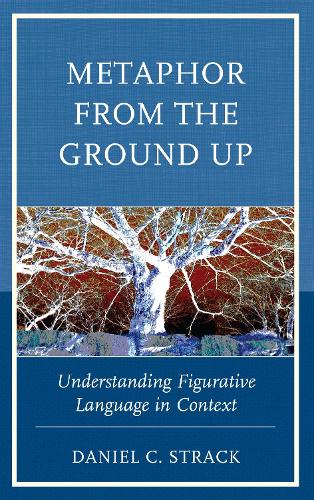
Metaphor from the Ground Up: Understanding Figurative Language in Context
(Paperback)
Available Formats
Publishing Details
Metaphor from the Ground Up: Understanding Figurative Language in Context
By (Author) Daniel C. Strack
Bloomsbury Publishing PLC
Lexington Books
21st June 2021
United States
Classifications
Professional and Scholarly
Non Fiction
Social and political philosophy
Social, group or collective psychology
Semantics, discourse analysis, stylistics
808.032
Physical Properties
Paperback
196
Width 155mm, Height 230mm, Spine 13mm
322g
Description
Metaphor from the Ground Up introduces Conceptual Filtering Theory, a theory of mental processing that describes figurative language communication in terms of conceptual domain projection and contextual disambiguation. In an attempt to match theoretical observations from cognitive semantics and pragmatics with related knowledge about mental processes from cognitive neuroscience, CFT first examines the distributed nature of conceptualization and then uses this background information to explain metonymic binding and metaphoric mapping. Once the perceptual origins of metonymy and metaphor have been demonstrated, CFT offers a detailed account of how salient aspects of conceptualization differentially combine to achieve predictable inferencing results in linguistic communication. In addition, CFT characterizes the role of contextual effects in pruning salient inferencing options and demonstrates how situational frames can be manipulated to guide semantic outcomes. The book as a whole will assert that figurative language processing cannot be characterized in terms of a generically constituted base system that receives inputs and spits out predictable results according to logical probability in a situational vacuum. Rather, it is a dynamic, context-sensitive process that continually reweights the underlying system so as to rapidly select situation-relevant lines of inferencing from among a variety of salient inferencing options.
Reviews
With a succinct, accessible, and critical review of current metaphor-metonymy theories in the light of recent neurobiological research, this book is a must read for advancing the theory of cognitive metaphor.
-- Margaret H. Freeman, Myrifield Institute for Cognition and the Arts
In this book the weaknesses of Conceptual Metaphor Theory (CMT), arguably the most important theoretical position that has arisen since the empirical renaissance of metaphor studies in the 1960s, are outlined. Taking a multi-disciplinary perspective, Strack's aim is to find a way to gap these weaknesses and suggest an integration of CMT and other modern theoretical approaches consistent with findings from both modern cognitive and neuroscience research. Whether or not one ultimately agrees with the authors conclusion, this is a must read for scholars interested in metaphor: it is not only well-written and thoughtful, but, importantly, thought-provoking. -- Albert Katz, Western University
This is a truly thought-provoking book that will definitely interest researchers and students in the fields of metaphor, metonymy, and figurative language. Dr. Strack carefully discusses some of the main controversies surrounding conceptual metaphor and metonymy theory (CMMT), and puts forth a number of ground-breaking proposals that will not leave anyone indifferent. I find particularly stimulating his discussion of the role of metonymy in narrative framing and his attempt at connecting CMMT with recent research in neuroscience and psycholinguistics via his Conceptual Filtering Theory. -- Antonio Barcelona, University of Crdoba
Author Bio
Daniel C. Strack is professor in the English Department at the University of Kitakyushu in Japan.
